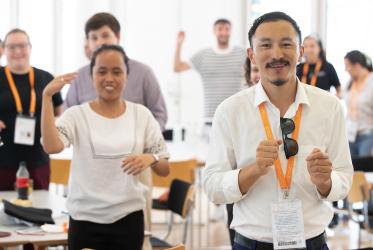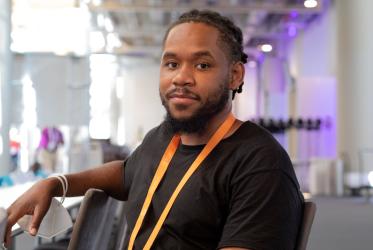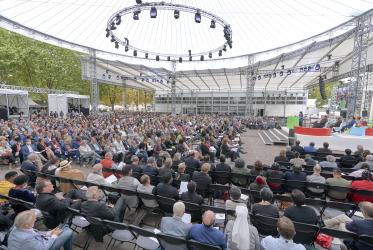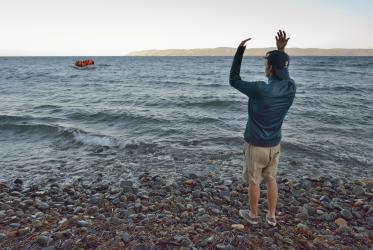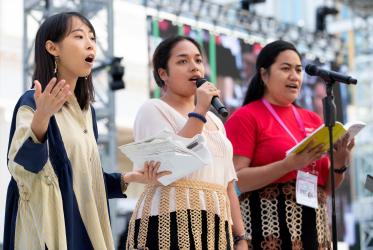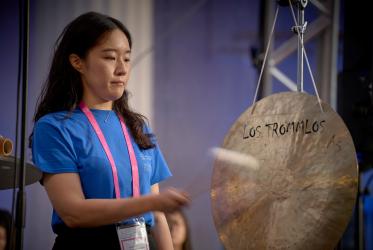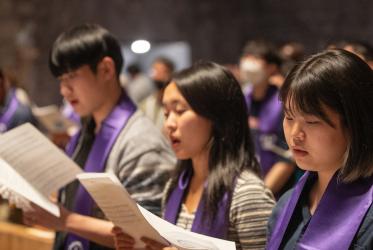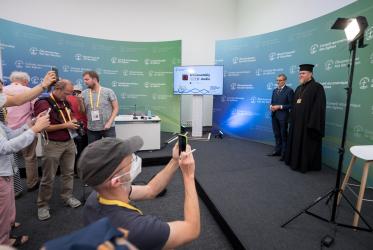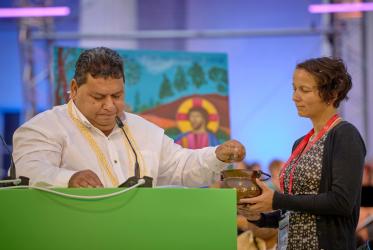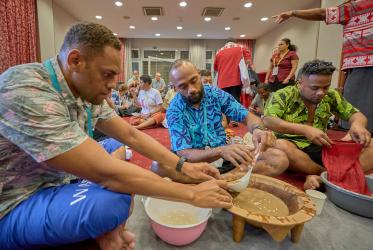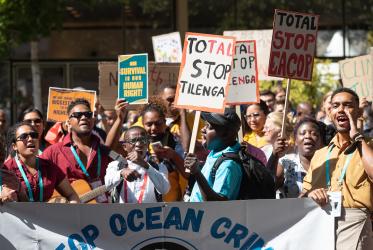Displaying 281 - 300 of 879
13 September 2022
Aspiring therapist opens his mind to different beliefs
13 September 2022
From hostility to hospitality: Closing prayers at Karlsruhe
09 September 2022
Dear future steward
08 September 2022
Water as a divine gift, and justice issue
08 September 2022
Ukraine: Responding to humanitarian need
08 September 2022
Harmonies of unity: Wednesday morning prayers
07 September 2022
The earth is the LORD's… and the Lord is claiming it back
07 September 2022
An evening of welcome and a historic pilgrimage along the Rhine
06 September 2022
Children of God unite in Tuesday morning prayers
06 September 2022
Uppsala 1968: The times, they were a’changing
06 September 2022
Side-by-side, they pray for peaceful unification of the Korean Peninsula
06 September 2022
Invitation to the press conference of the WCC 11th Assembly, 6 September
06 September 2022
Bible studies bring ways to learn how Christ’s love moves us
06 September 2022
Indigenous women struggle for identity in Asia and beyond
05 September 2022
Regional perspectives brought to the 11th Assembly
05 September 2022
Multifaith advocacy for the climate: Not really much time left
04 September 2022
